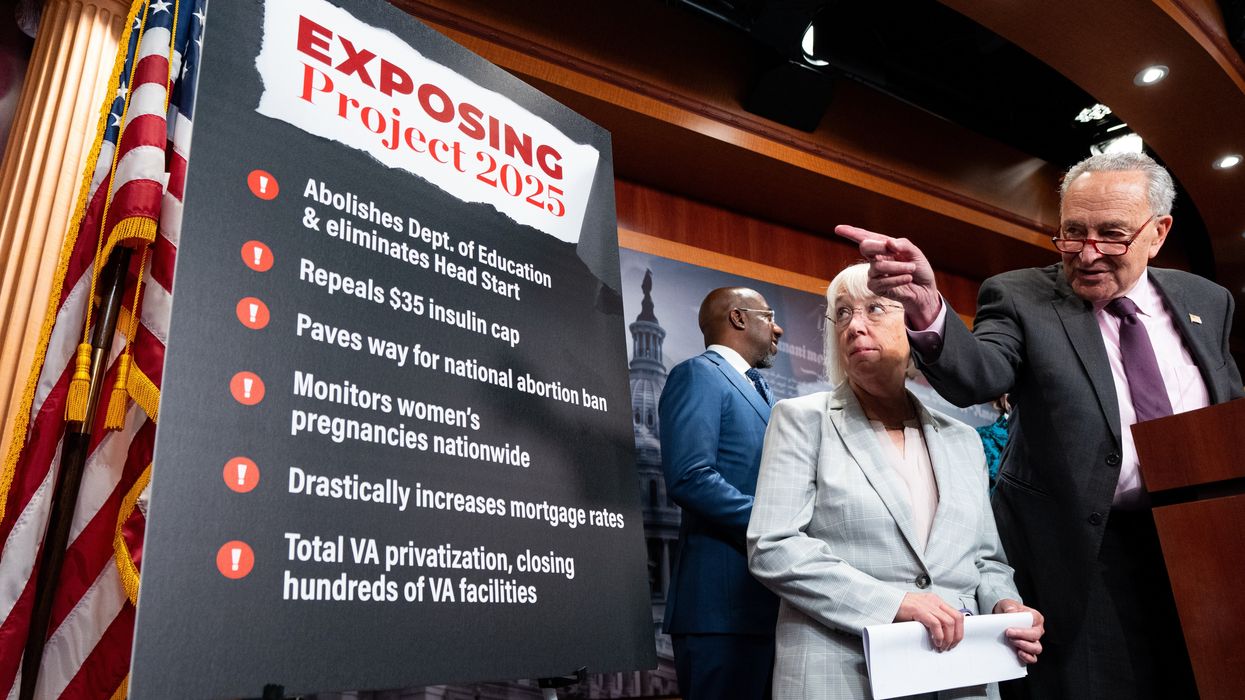Corbin is professor emeritus of marketing at the University of Northern Iowa.
It’s becoming crystal clear, as we near the Nov. 5 presidential election, that voters need to seriously check out the radical government reformation policies contained within the Heritage Foundation’s Project 2025. Here’s why.
The right-wing think tank has written not one, not two, but nine “Mandate for Leadership” documents for Republican presidential candidates, with its first playbook published in 1981. The Heritage Foundation spent $22 million —serious money — in 2023 to create Project 2025 for Donald Trump to implement.
Trump’s claim he knows nothing about Project 2025 is questionable to say the least. The Heritage Foundation’s website notes Trump “fully embraced” 64 percent of its 321 policy reform recommendations during his 2017-2021 presidency.
Heritage also compiled a database of Republicans whom Trump could hire if elected in 2016. Sixty-six of them served in his first administration, including five key Trump acolytes: Betsy DeVos, secretary of education; Scott Pruitt, head of the Environmental Protection Agency; Mick Mulvaney, White House chief of staff; Rick Perry, secretary of energy; and Jeff Sessions, attorney general.
Trump asked the Heritage Foundation and the Federalist Society to compile a list of 21 potential Supreme Court nominees. John Malcolm prepared the list for Heritage and when Trump nominated Neil Gorsuch to the Supreme Court, Politico referred to Malcolm as “ the man who picked the next Supreme Court justice.”.
In a Sept. 7 entry in Letters from an American, Boston College history professor Heather Cox Richardson wrote that on Sept. 5, Trump — at an event with Sean Hannity of Fox News – “embraced the key element of Project 2025 that calls for a dictatorial leader to take over the U.S. That document maintains that ‘personnel is policy’ and that the way to achieve all that the Christian nationalists want is to fire the nonpartisan civil servants currently in place and put their own people into office.”
She also noted that, during a rally in Mosinee, Wis., Trump publicly embraced Project 2025’s promise to eliminate the Department of Education.
Twenty-three videos have been prepared to coach future Trump administration appointees on how to implement Project 2025. Twenty-nine of the 36 speakers in the videos worked for Trump or his running mate, Sen. J.D. Vance.
At least 140 people who worked in the Trump administration were involved in writing Project 2025 (CNN, July 11).
CBS News identified 270 of Project 2025’s policy proposals that matched Trump’s past political and current campaign rhetoric.
Evidence is replete the Heritage Foundation and the Trump-Vance ticket are joined at the hip and, therefore, Project 2025’s extremist policies are implicitly on the Nov. 5 ballot.
Two-thirds (68 percent) of Americans are opposed to Project 2025’s extremist policy proposals. And no former GOP presidents or vice presidents have endorsed Trump.
Voters need to find out on their own accord what outlandish policies the Heritage Foundation wants Trump and Vance to implement. I am grateful that The Fulcrum, a cross-partisan publication not associated with the Harris-Walz campaign, has become a platform for an analysis of Project 2025, having published over 30 op-eds devoted to analyzing Project 2025’s content.
The entire series is accessible for free.
The Fulcrum contributors who delve into the nitty-gritty details of Project 2025 policies are cross-partisan and are not associated with the Harris-Walz campaign.
Here’s a partial list of Project 2025 policy topics that have been thoroughly examined, individually, in The Fulcrum: Department of Education, Christian nationalism, Department of Defense, Federal Reserve, Department of Energy, Parents Bill of Rights, Department of Veteran Affairs, Education Savings Accounts, Department of Homeland Security, Voting Rights Act, Department of Labor, Christo-fascist manifesto, Department of Health and Human Services, Environmental Protection Agency, Department of State, Federal Communications Commission, Department of Justice and Schedule F (firing civil servants).
Since Trump implemented 64 percent of Heritage Foundation’s 2017-2021 manifesto and knowing he’s not a policy wonk, odds are great — if elected — he will embrace the latest version of Project 2025 lock, stock and barrel. Remember, past actions are the best predictor of future behavior.
Let’s agree that the soul of America is democracy. On Nov. 5, will you embrace Project 2025’s extremist-oriented policies that threaten our form of government or support well-reasoned policies that protect and preserve our constitutional rights?
More articles about Project 2025
- A cross-partisan approach
- An Introduction
- Rumors of Project 2025’s Demise are Greatly Exaggerated
- Department of Education
- Managing the bureaucracy
- Department of Defense
- Department of Energy
- The Environmental Protection Agency
- Education Savings Accounts
- Department of Veterans Affairs
- The Department of Homeland Security
- U.S. Agency for International Development
- Affirmative action
- A federal Parents' Bill of Rights
- Department of Labor
- Intelligence community
- Department of State
- Department of the Interior
- Federal Communications Commission
- A perspective from Europe
- Department of Health and Human Services
- Voting Rights Act
- Another look at the Federal Communications Commission
- A Christo-fascist manifesto designing a theocracy
- Voters oppose the far-right playbook
- The Schedule F threat to democracy
- The Department of Justice
- A blueprint for Christian nationalist regime change
- How anti-trans proposals could impact all families
- The Federal Reserve
- A threat to equitable education



















 From left to right: Gabriel Cardona-Fox, Bud Branch, Joe Concienne
From left to right: Gabriel Cardona-Fox, Bud Branch, Joe Concienne 
Trump & Hegseth gave Mark Kelly a huge 2028 gift